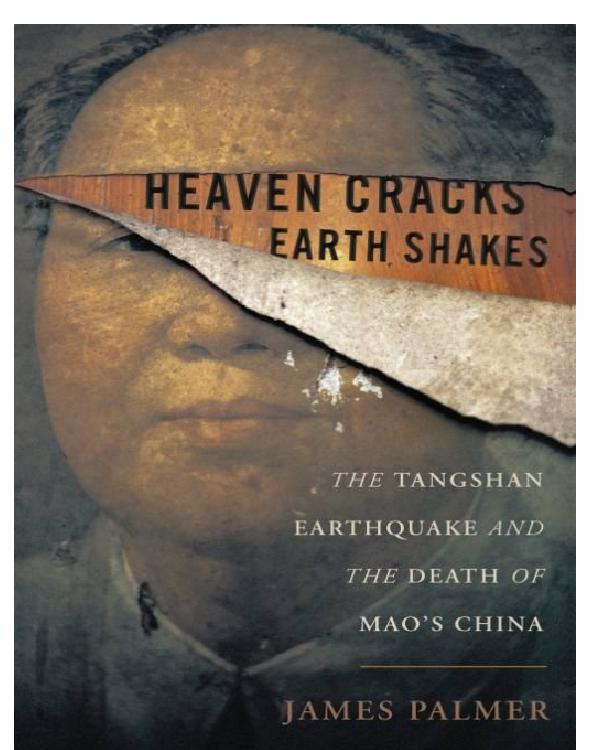
Heaven Cracks, Earth Shakes
The Tangshan Earthquake and the Death of Mao's China
فرمت کتاب
ebook
تاریخ انتشار
2012
نویسنده
Phyllis Everettنویسنده
Ronelle Alexanderنویسنده
Phyllis Everettنویسنده
Ronelle Alexanderنویسنده
James Palmerناشر
Basic Booksشابک
9780465023493
کتاب های مرتبط
- اطلاعات
- نقد و بررسی
- دیدگاه کاربران
نقد و بررسی

Starred review from October 10, 2011
A devastating temblor is the least of the shocks in this vivid history of a pivotal year in China’s journey from communism. Historian Palmer (The Bloody White Baron) pens a gripping narrative of the 1976 earthquake, which leveled the city of Tangshan and killed hundreds of thousands of people during “the most concentrated instant of destruction humanity has ever known.” But the disaster is mainly a metaphorical image within Palmer’s larger account of the stormy final decade of Mao’s reign, centered on the Cultural Revolution and the power struggle after his death. It was a period of constant, bloody upheaval, with Mao a doddering lord of misrule plotting breakneck political betrayals and goading pubescent Red Guards into fits of hysterical violence against their elders. The denouement is a comic opera in which Mao’s dragon lady widow, Jiang Qing, and her ultra-radical Gang of Four are ousted by a centrist coup. Palmer gives readers a lucid, canny portrait, filled with telling details, of a society tamped down by repression, regimentation, and drab poverty, but seething with antiauthoritarian rage. His is one of the most illuminating studies of this little understood period, and of the crucible from which modern China emerged. Photos.

November 1, 2011
A compressed, fast-moving survey of the waning rule of Mao Zedong, precipitated by the horrendous Tangshan earthquake of 1976. Beijing-based author Palmer (The Bloody White Baron: The Extraordinary Story of the Russian Nobleman Who Became the Last Khan of Mongolia, 2009) efficiently lays out the devastation wrought by 10 years of the Cultural Revolution, and how over the space of a few months the Chinese people managed to rebound and move forward. The year was scarred irrevocably by three events: the death in January of the people's beloved prime minister Zhou Enlai; the earthquake in Tangshan, which had been predicted several days before yet warnings ignored, flattening the coal-mining town in the space of 23 seconds and killing more than 650,000 people; and Mao's death in September, which set off a power struggle between the Gang of Four, led by Mao's widow, Jiang Qing, and the supporters of Deng Xiaoping. Palmer, who speaks Mandarin, conducted extensive interviews with survivors of the era and portrays the state of utter exhaustion and anguish experienced by the Chinese at this late point in the Communist tragedy. The death of Zhou, and the regime's slight to his memory as perceived by the people in party messages and signs, enraged them, arousing the spark of resistance in demonstrations in Tiananmen Square to vent their grief and anger. Further, in the wake of the earthquake's devastation, the people were essentially left to their own survival devices, the actual tragedy covered up and their own grief betrayed. Eventually the darkening public mood would find its scapegoat in the Gang of Four. A riveting précis of the fatal weaknesses in Mao's dictatorship.
(COPYRIGHT (2011) KIRKUS REVIEWS/NIELSEN BUSINESS MEDIA, INC. ALL RIGHTS RESERVED.)

December 1, 2011
On July 28, 1976, the provincial Chinese city of Tangshan was virtually obliterated by an earthquake that killed an estimated half-million people. Palmer, who resides in Beijing, effectively conveys the numbing shock of survivors as well as the horrors of the human and physical destruction. Yet the real focus of this account is on other cataclysmic, man-made events that were engulfing China at the same time. Zhou Enlai, the popular and relatively moderate premier, had recently died. For the past decade, Mao, his megalomania increased by physical and mental decline, had foisted the Cultural Revolution on his people. Now he lay near death, while the despised Gang of Four, headed by Mao's wife, struggled to keep power and impose its bizarre visions on an increasingly resistant population. Palmer eloquently portrays an era and a regime in its death throes as a transformed, modern China begins to emerge.(Reprinted with permission of Booklist, copyright 2011, American Library Association.)

























دیدگاه کاربران